Top Lists
6 Leaders Responsible for Nigeria Independence
The credit for Nigeria’s independence goes to the many brave and visionary leaders who fought tirelessly for their country’s freedom.
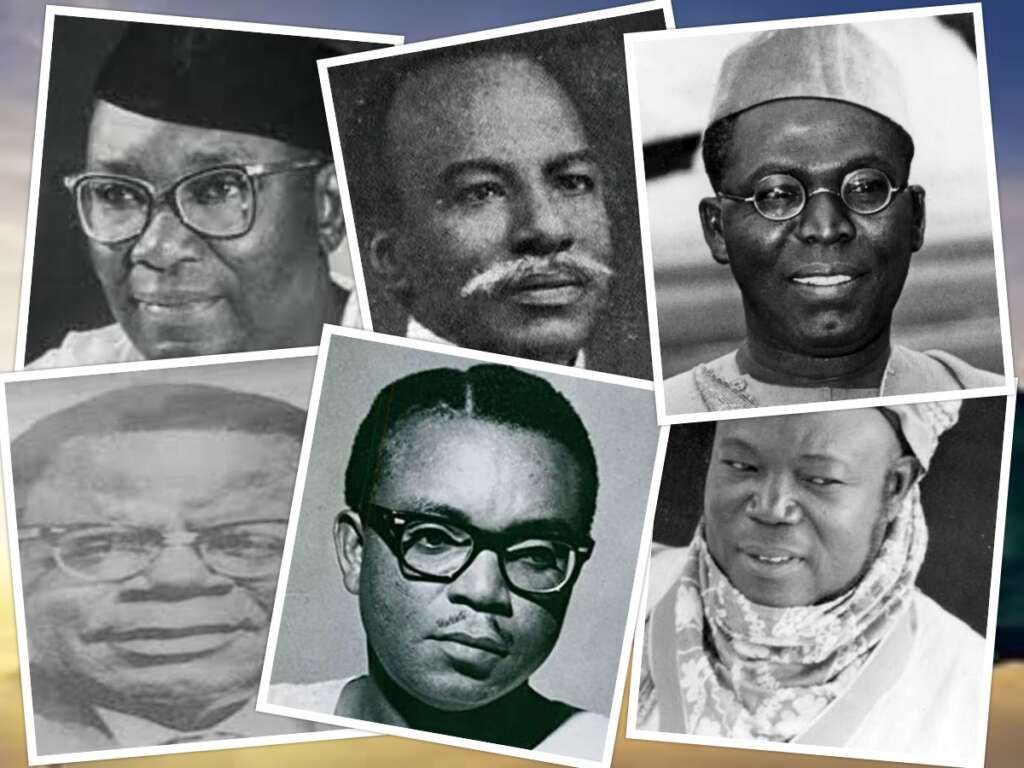
Nigeria’s independence from British colonial rule in 1960 was a significant moment in the country’s history. It was a long and hard-fought battle, and the credit for Nigeria’s independence goes to the many brave and visionary leaders who fought tirelessly for their country’s freedom.
In this post, we will take a closer look at six leaders who played a crucial role in Nigeria’s struggle for independence. From political pioneers to revolutionary thinkers, these leaders left an indelible mark on Nigeria’s history and continue to inspire generations of Nigerians today.
1. Herbert Macaulay
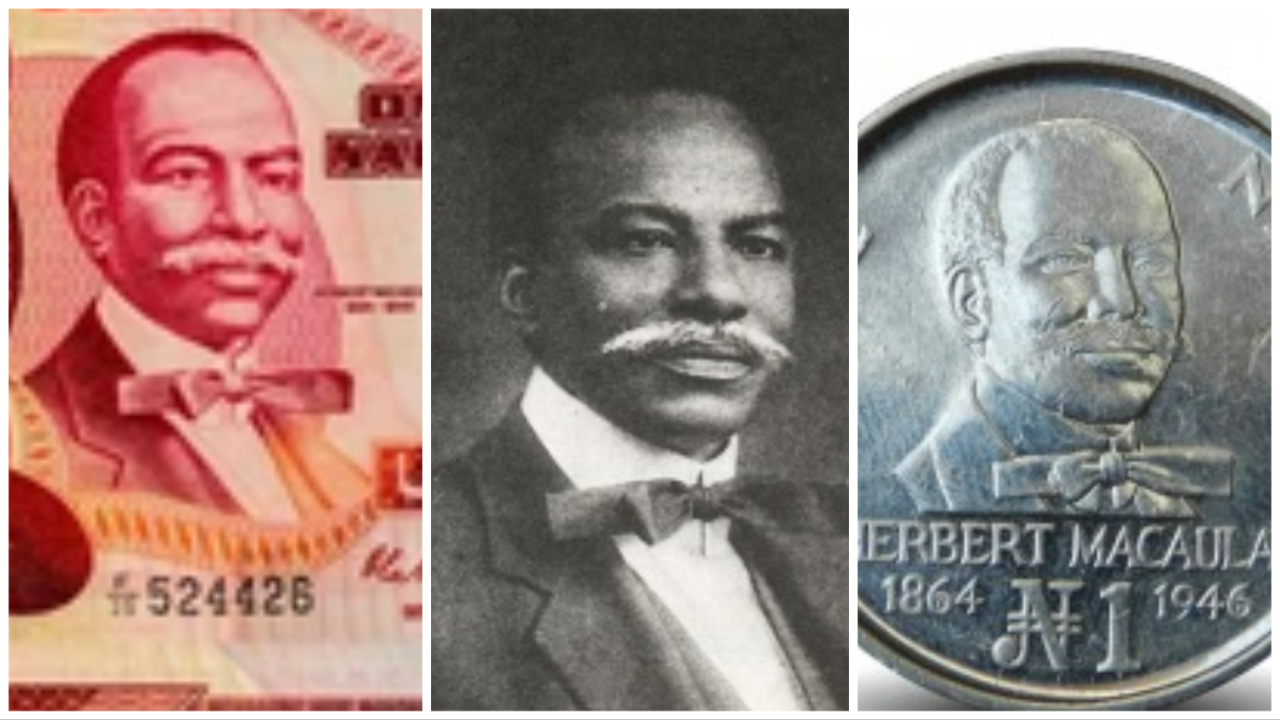
Photo collage of Herbert Macaulay.
Herbert Macaulay was a Nigerian nationalist, who is considered by many Nigerians as the founder of Nigerian nationalism. He played a key role in Nigeria’s fight for independence from British colonial rule and was known for his strong opposition to the colonial government and its policies.
Macaulay was not afraid to stand up for his beliefs and was instrumental in exposing European corruption in the handling of railway finances in 1908. He also fought for the rights of Nigerian chiefs whose lands were taken by the colonial government and won a compensation case for them in front of the Privy Council in London in 1919.
Additionally, Macaulay was an advocate for the people and opposed the prohibition of spirits into Nigeria because he believed it would lead to reduced government revenues and increased taxation. He was also against colonial taxation to fund the water supply in Lagos, arguing that it was taxation without representation.
To further his political activities, Macaulay co-founded the Nigerian Daily News, which gave him a platform to express his views. In 1923, he founded the Nigerian National Democratic Party (NNDP), which was the first Nigerian political party. The party’s objective was to promote democracy in Nigeria and increase Nigerian participation in the social, economic, and educational development of the country. The NNDP won all the seats in the elections of 1923, 1928, and 1933, which showed the strength and popularity of Macaulay’s political vision.
Although he didn’t live through to witness the attainment of Nigerian independence, he was very instrumental in the advocacy for independence.
2. Nnamdi Azikiwe
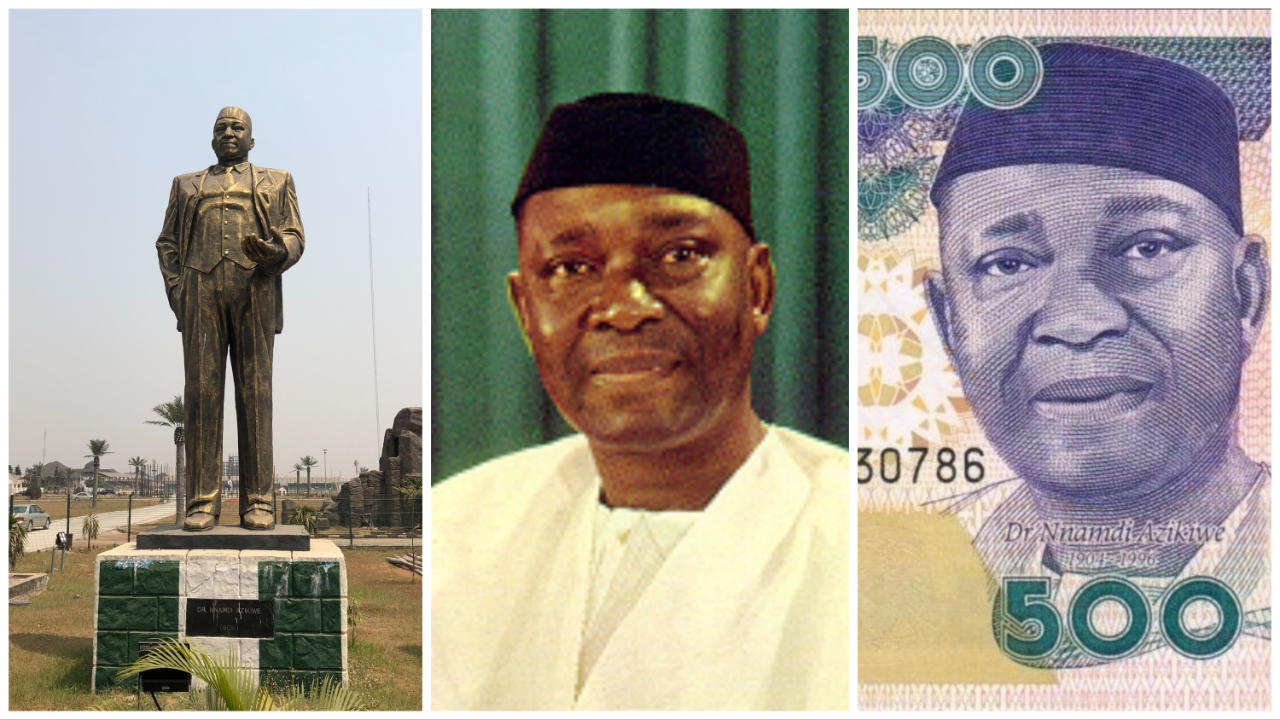
Collage of Nnamdi Azikwe, His Statue in Imo State, and his image on 500 Naira note.
Nnamdi Benjamin Azikiwe, also known as “the Great Zik of Africa,” was a Nigerian leader who fought for Nigeria’s independence. He served as the first President of Nigeria from 1963 to 1966.
Azikiwe began his fight for nationalism as an editor of a newspaper called the African Morning Post in Ghana. He wrote a column called “The Inside Stuff by Zik” which talked about black pride and radical nationalism. He later founded the West African Pilot in 1937, a newspaper in Nigeria that promoted nationalism.
In 1944, Azikiwe co-founded the National Council of Nigeria and the Cameroons (NCNC) with Herbert Macaulay. He became the council’s secretary-general in 1946. He was appointed governor-general in 1960 and became the first Nigerian named to the Privy Council of the United Kingdom. When Nigeria became a republic in 1963, he became the first President of Nigeria.
Azikiwe’s work helped to inspire many Nigerians to fight for their country’s independence. He remains an important figure in Nigeria’s history and is remembered as a hero for his contributions to the country’s freedom.
3. Chief Obafemi Awolowo
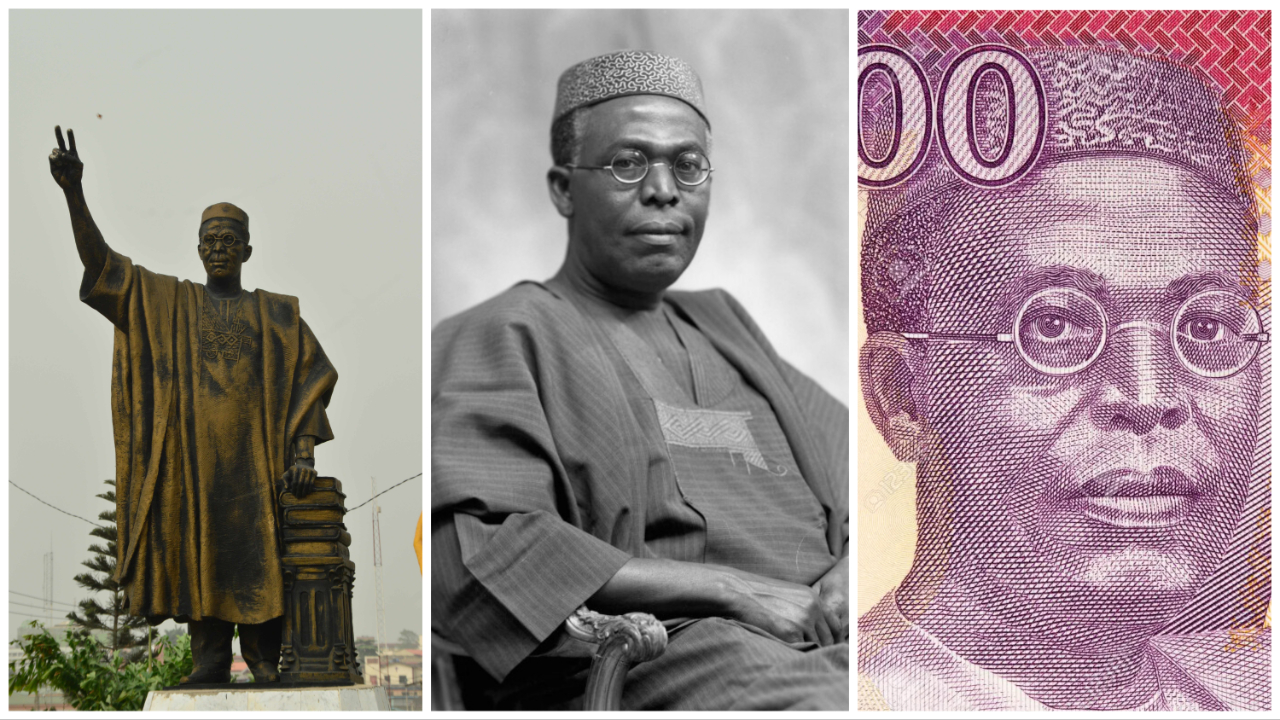
Collage of Chief Obafemi Awolowo, His Statue in Lagos State, and his image on 100 Naira note.
Chief Obafemi Awolowo was a great Nigerian nationalist and statesman who played a significant role in the fight for Nigeria’s independence. He served as the first Leader of Government Business and Minister of Local Government and Finance. Awolowo was also the first Premier of the Western Region under Nigeria’s parliamentary system from 1952 to 1959. He equally served as the official Leader of the Opposition in the federal parliament from 1959 to 1963.
In his early days, he was a nationalist and rose to become Western Provincial Secretary in the Nigerian Youth Movement. He founded the Nigerian Tribune in 1949, a newspaper that he used to educate Nigerians about nationalism.
Chief Awolowo believed that federalism was the only way for fair national integration and, as the head of the Action Group, he led demands for a federal constitution. His efforts paid off when the 1954 Lyttleton Constitution was introduced, which followed the model proposed by the Western Region delegation led by him. Chief Awolowo was a true Nigerian hero who fought for the betterment of his country and will always be remembered for his outstanding contributions to Nigeria’s independence.
4. Sir Ahmadu Bello
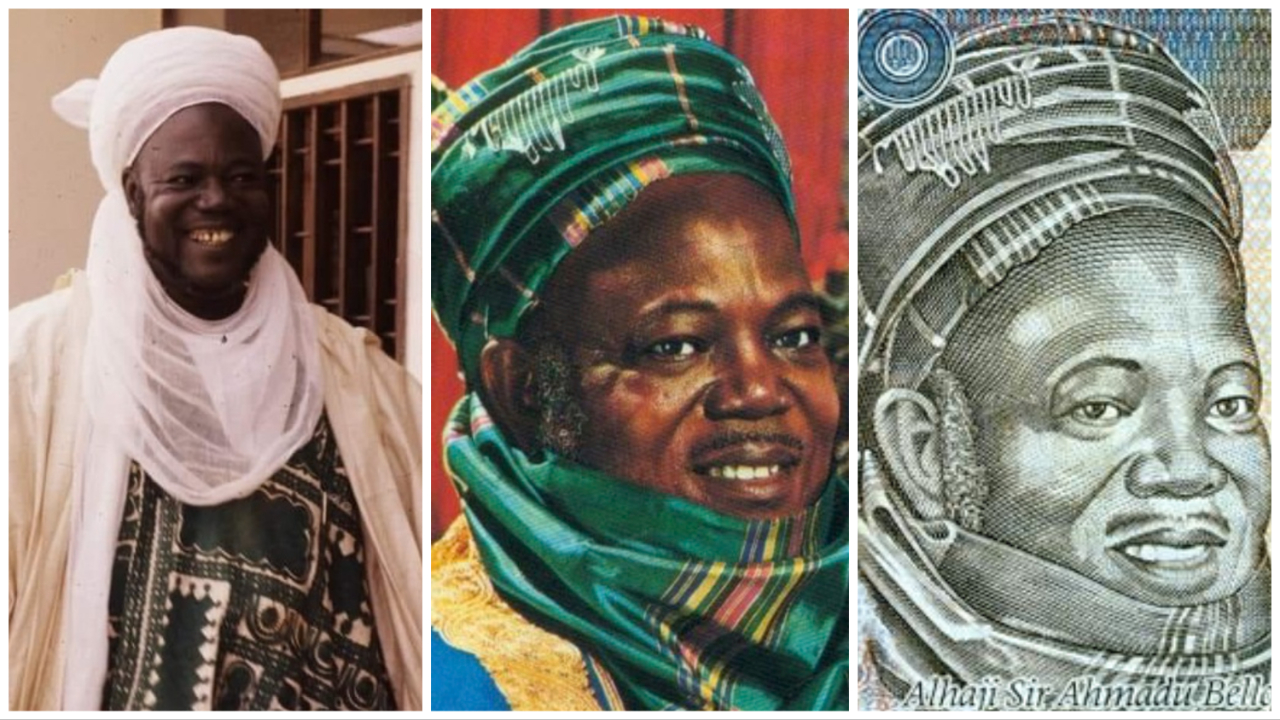
Sir Ahmadu Bello was a respected Nigerian leader who fought for the independence of Nigeria in 1960. He was the leader of the Northern Peoples Congress and served as the first Premier of Northern Nigeria from 1954 until his tragic assassination in 1966.
Ahmadu Bello started his political career as a representative for Sokoto in the regional House of Assembly, where he spoke up for the interests of the north and worked closely with other northern emirates. He was also part of a committee that redrafted the Richards Constitution.
Sir Ahamadu Bello was appointed as Minister of Works in 1952 and became the first Premier of Northern Nigeria in 1954. He led the NPC to win the most seats in the parliament in 1959 and formed an alliance with Dr. Nnamdi Azikiwe’s NCNC to create Nigeria’s first indigenous federal government, which paved the way for Nigeria’s independence from Britain. Sir Ahmadu Bello’s leadership and vision have continued to inspire Nigerians to this day.
5. Eyo Ita
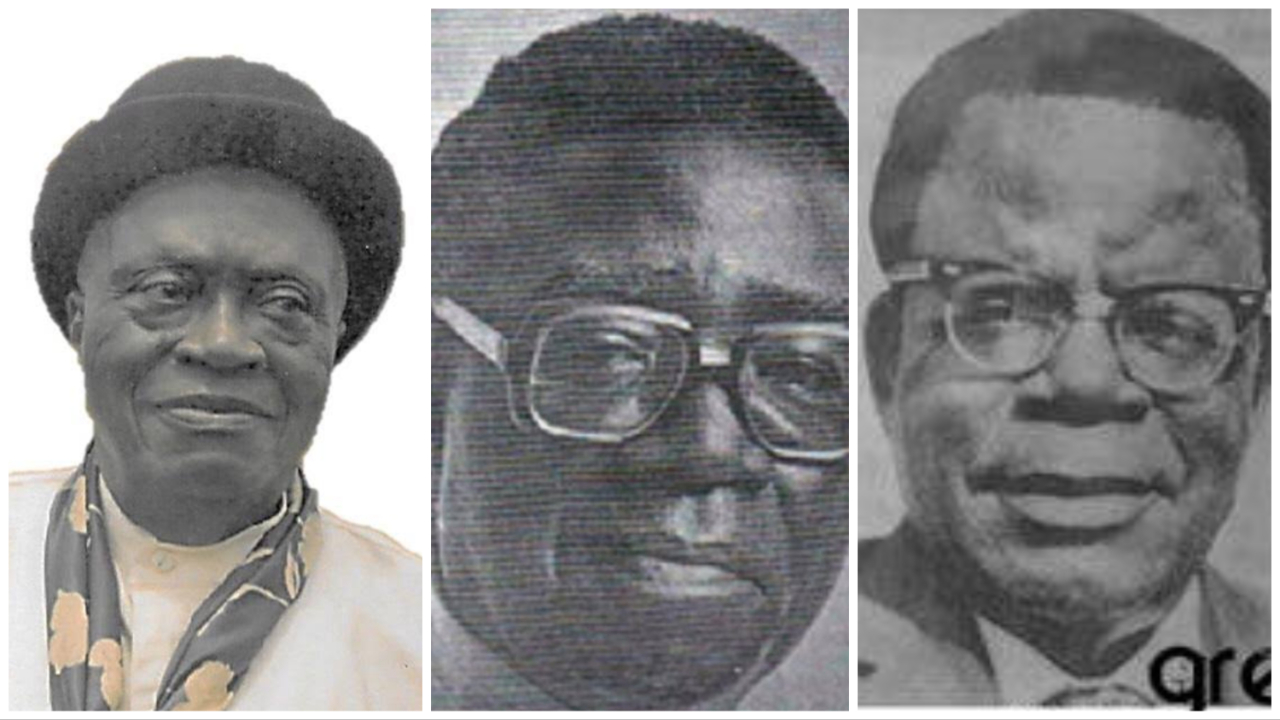
Eyo Ita was a famous Nigerian nationalist and politician who fought for his country’s freedom during British colonial rule. He was a very influential member of the Nigerian Youth Movement, which he founded in 1934 after returning from the United States. This organization brought together Nigerian youths from all over the country to work towards a common goal of gaining independence from Britain.
The Nigerian Youth Movement adopted the Youth Charter in 1937, which focused on promoting nationalism, unity between tribes, and hope for a better future. This movement was a catalyst for championing Nigeria’s independence, and Eyo Ita was at the forefront of it all.
6. Anthony Enahoro
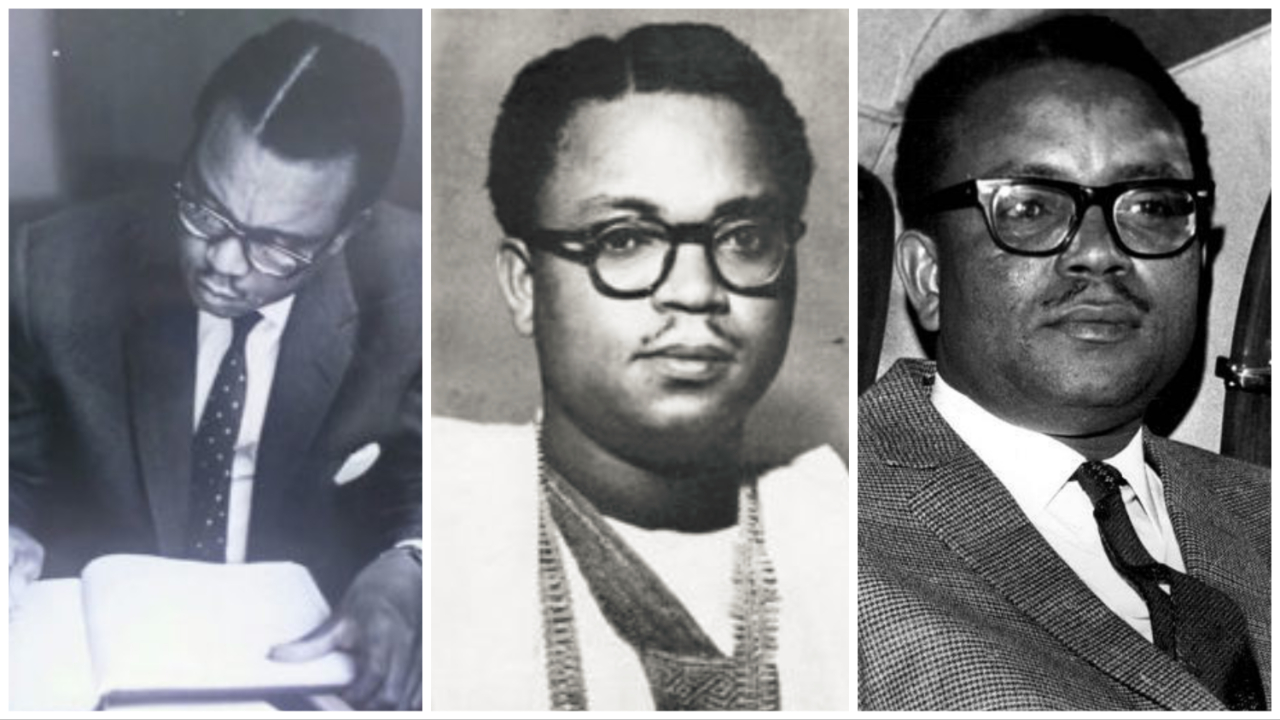
Chief Anthony Eromosele Enahoro was one of Nigeria’s foremost anti-colonial and pro-democracy activists. He fought tirelessly for democracy and was one of the founders of the Mid-West Party. Enahoro was also the editor of Nnamdi Azikiwe’s Southern Nigerian Defender newspaper in Ibadan back in 1944.
In 1953, Enahoro made history by moving the motion for Nigeria’s independence in parliament, becoming the first person to do so. Although it took several setbacks and defeats, Nigeria finally gained its independence in 1960. Thanks to his immense contribution to Nigeria’s political landscape, Enahoro has been widely recognized as the “Father of Nigeria State” by academics and Nigerians alike.
FAQs
Who is the founder of nationalism in Nigeria?
Herbert Macaulay has been popularly credited as the founder of nationalism in Nigeria due to his immense contributions to the fight for Nigerian independence. He founded the first indigenous political party in Nigeria (NNDP) in 1923 which was instrumental in instituting democracy and political participation in Nigeria.
What role did women play in Nigeria’s struggle for independence?
Women played a significant role in Nigeria’s struggle for independence by participating in protests, organizing boycotts, and providing financial support for the movement.
Who formed the first Nigerian Political Party?
Herbert Macaulay founded the first Nigerian political party named Nigerian National Democratic Party (NNDP) on 24 June 1923.
Who was the first President of Nigeria?
Nnamdi Azikwe was a Nigerian nationalist who fought for the independence of Nigeria and became the first president of Nigeria from 1963 to 1966.
Who was Nigeria’s first Prime Minister?
Nigeria’s first Prime Minister was Sir Abubakar Tafawa Balewa from 1 October 1960 to 15 January 1966.
Who was the youngest president of Nigeria?
Yakubu Gowon became the youngest person to become head of state in Nigeria at the age of 31 after the assassination of Johnson Aguiyi-Ironsi during the July 1966 counter-coup.
Who is the longest-serving President in Nigeria?
The longest-serving president in Nigeria was Olusegun Obasanjo, who served two non-consecutive terms. His first term was from 1976 to 1979 and his second term was from 1999 to 2007, totalling 11 years and 230 days in office.
Who was the first Military President of Nigeria?
Johnson Aguiyi-Ironsi was Nigeria’s first military head of state after successfully putting an end to the coup in January 1966. However, his stay in power was short-lived as he was killed in another coup that ensued six months later (July 1966).
Who led the first coup d’etat in Nigeria?
The first coup d’état in Nigeria was led by Chukwuma Kaduna Nzeogwu and Emmanuel Ifeajuna on 15 January 1966, leading to the death of many top officials including the Prime minister, Tafawa Balewa.
How long did military rule last in Nigeria?
Between 1966 and 1999, Nigeria operated under military rule for 29 years.
Who announced Nigeria’s Independence?
Nigeria’s independence was announced in a speech read by Sir Abubakar Tafawa Balewa on October 1, 1960.
